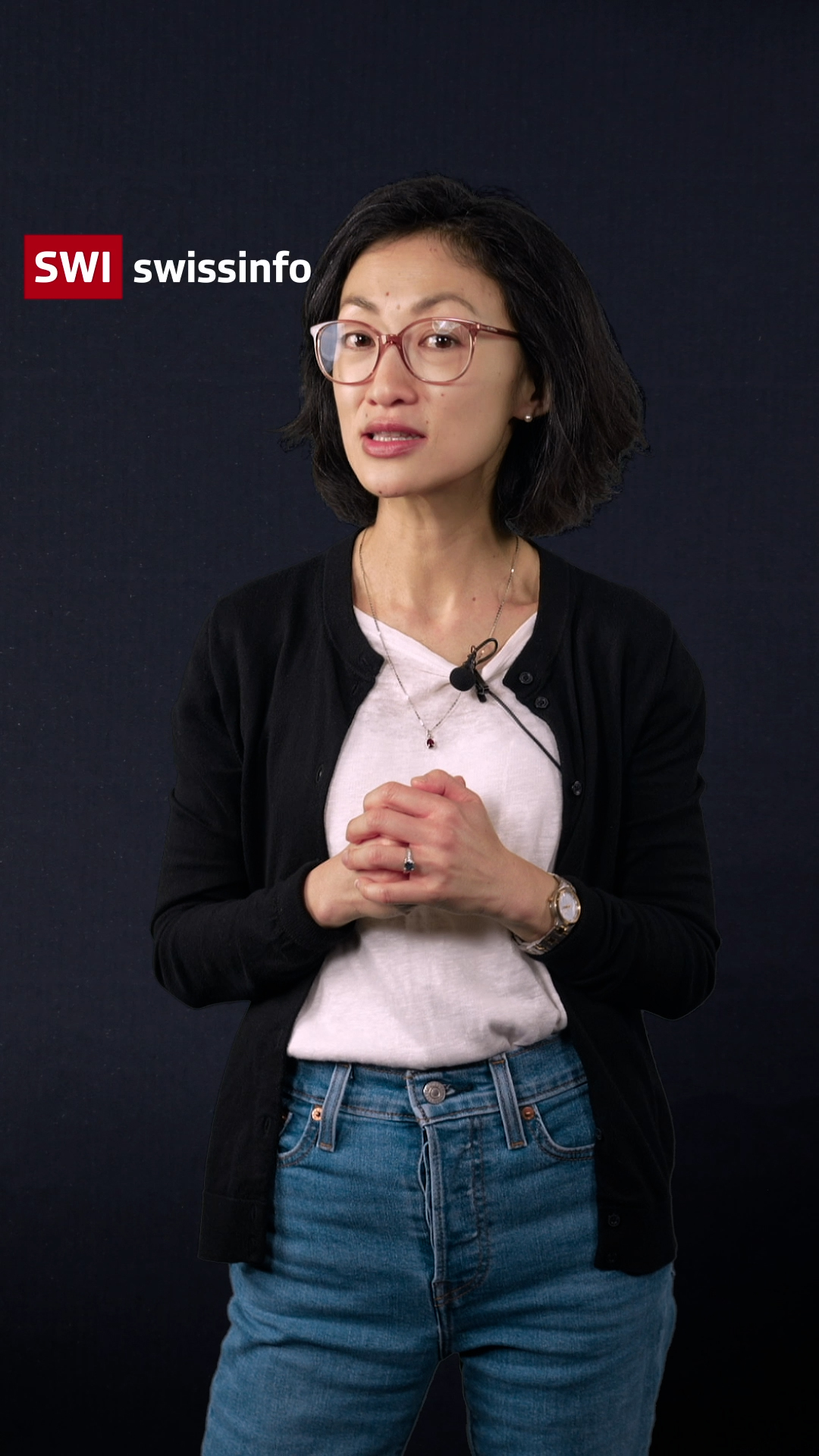
「直接民主主義国家は偽情報に対してより脆弱なのか」___この質問がスイスを意味する(?)と仮定するならば、国民がスイスのメディアを通じて情報を得ているという事実を考慮しなければならない。だとすれば、問題は「スイスのメディアは偽情報に対してより脆弱なのか?
"Are direct democracies more vulnerable to disinformation?”____If we assume the question means Switzerland (?), we must then have regard to the fact that the public obtains information through Swiss media. If so, the question then becomes; 'Is Swiss media more vulnerable to disinformation?'
スイスの直接民主制は完璧ではないし、もちろん偽情報の影響を受けやすいかもしれない。スイスとヨーロッパが今直面している最大の脅威は、偽情報ではなく、ロシアとの戦争を引き起こそうと躍起になっているように見える無能な政治指導者たちである。
Direct democracy in Switzerland is not perfect, and of course may be vulnerable to disinformation, but it is a lot better than the alternatives. __The biggest threat we face today in Switzerland and in Europe is not from disinformation but from our inept political leaders who seem hell bent on provoking a war with Russia.
ご投稿ありがとうございました!
Vielen Dank für Ihren Beitrag!
正解:その結果、国民の真の意思を反映しない選択がなされる可能性がある。
Corrigir: Isso pode resultar em escolhas que não reflectem a vontade genuína da população.
ご見解とコメントをありがとうございます!民主主義国家では、政治家が選挙で選ばれるだけでなく、国民投票によって国民が個々の問題について決定することもある。
Vielen Dank für Ihre Perspektive und Ihre Kommentare! Und denken Sie, dass dies einen Unterschied macht, wenn in Demokratien nicht nur Politikerinnen und Politiker gewählt werden, sondern die Bevölkerung auch über eine einzelne Themen in Volksabstimmungen entscheidet?
確かに、偽情報は最近の大きな関心事である。
いくつかの理由から、民主主義にとって重大な脅威となりうる:
1.偽情報は、民主主義制度に対する国民の信頼を損なう可能性がある。人々が何を信じていいのかわからなくなると、政府、メディア、さらには選挙プロセスに対する懐疑が広まる可能性がある。
2.2.世論操作 情報が虚偽であったり歪曲されていたりすると、世論操作に利用され、選挙や政治的決定に影響を与える。その結果、国民の真の意思を反映しない選択がなされる可能性がある。
Com certeza, a desinformação é uma grande
Preocupação nos dias de hoje e pode ser uma ameaça significativa à democracia por várias razões:
1. A desinformação pode minar a confiança do público nas instituições democráticas. Quando as pessoas não sabem em que ou no que acreditar, isso pode levar a um ceticismo generalizado em relação ao governo, à midia e até mesmo ao processo eleitoral.
2. Manipulação da opinião Pública, se as informações forem falsas ou distorcidas podem ser usadas para manipular a opinião pública, influenciando decisões eleitorais e políticas. Isso pode resultar em esco que não reflectem a vontade genuina da população.
私たちは、特に左派グリーン界隈の議論で繰り返し使われる「偽情報」という流行語に不安を感じる。誰が、どの(政治的?)組織、政府、議会などが、何が偽情報にあたるかを決めるのか?まっとうな市民はその決定に口を出せるのだろうか?私たちは警戒を怠らず、好ましくない発言と思われるものを公式の命令で弾圧することが、市民による望まない検閲につながらないよう、そしてその結果、私たちの意見や思想の自由が抑制されないよう、細心の注意を払わなければならない。これは憲法で保障されている。スイス国民は自分の頭で考え、何が重大で何が重大でないかを判断できるほど成熟している。事前検閲は必要ないし、政治的に偏った検閲も望まない!そんなものは独裁国家にしか存在しないし、今でも存在する。
Wir verspüren ein Unbehagen bel diesem, vor allem von links-grünen Kreisen immer wieder in die Diskussionen eingebrachten Modewort "Desinformation". Wer, welche (politischen?) Organisationen Regierungen Parlamente etc. entscheiden, was eine Desinformation ist? Haben rechtschaffene Bürger ein Mitspracherecht bei diesen Entscheidungen? Wir müssen aufmerksam sein und sehr gut aufpassen, dass behördlich verordnete Unterdrückungen von bestimmten, angeblich unerwünschten Aussagen nicht zu einer vom Bürger ungewollten Zensur und damit zur Beschneidung unserer Meinung- und Gedankenfreiheit führen. Diese ist verfassungsmässig garantiert. Die Schweizer Bürger sind selbständig denkend und reif genug, um bei der heutigen Informationsflut beurteilen zu können, was seriös ist und was nicht. Wir brauchen und wollen keine Vorzensur, schon gar nicht politisch einseitige! Das gab und gibt es nur in Diktaturen.
こんにちは。
しかし、偽情報が「流行語」であるというご意見には同意しかねます。このテーマに関する国会のイニシアティブのほとんどは、FDPのメンバーから生まれています。
何が偽情報にあたるかを誰が決めるのかという問題は、拙稿https://www.swissinfo.ch/ger/demokratie/geistige-landesverteidigung-die-wege-mit-denen-europ%C3%A4ische-demokratien-wie-die-schweiz-der-neuen-bedrohungslage-begegnen/89057566 でも取り上げたように、実に厄介なものだ。
しかし定義によれば、偽情報とは、誰かが欺く意図を持って共有したコンテンツのことである。従って、不人気な意見の信用を失墜させることが問題なのではなく、欺く意図をもって流布されたコンテンツを意図的にコントロールすることが問題なのである。
これは通常、独裁政権からもたらされ、民主主義を不安定にすることを目的としている。
Guten Tag und vielen Dank für Ihren Beitrag.
Ich muss Ihnen allerdings widersprechen, dass es sich bei Desinformation um ein "Modewort" handelt - und die meisten Parlamentsvorstösse zum Thema kommen aus den Reihen der FDP.
Die Frage, wer entscheidet, was Desinformation ist, ist tatsächlich heikel, wie ich in meinem Artikel auch angeschaut habe: https://www.swissinfo.ch/ger/demokratie/geistige-landesverteidigung-die-wege-mit-denen-europ%C3%A4ische-demokratien-wie-die-schweiz-der-neuen-bedrohungslage-begegnen/89057566
Qua Definition sind Desinformation aber Inhalte, die jemand mit einer Täuschungsabsicht geteilt hat. Entsprechend: Es geht also nicht darum, missliebige Meinungen zu diskreditieren, sondern bewusst, mit Täuschungsabsicht gestreute Inhalte unter Kontrolle zu bringen.
Meist kommen diese von Diktaturen - und verfolgen eben die Absicht, Demokratien zu destabilisieren.
偽情報は人類の一部であり、私たちとともにあり続けるが、それと戦う方法があると私は信じている。偽情報が蔓延している理由のひとつは? 学校では教わらなかった基本原則が、司法制度の基礎になっている。
政党が2つ以上ある国は、偽情報が蔓延しやすい。政党が増えれば、善悪の区別がつきにくくなる!
簡単に説明しよう。司法制度は完璧な例であり、その原則に基づいてのみ機能している。
要するに、法廷、裁判官、2つの当事者......。
裁判官が公正な判断を下せるのは、双方の言い分に耳を傾けた場合に限られる。それ以外に方法はない、単純なことだ......。
現実の生活では、私たちは分裂しており、人々は裁判官が従わなければならないことにほとんど従わない。
人々は非常に偏向しており、反対側の意見に耳を傾ける機会さえ与えず、自分の政党のスタンスを擁護している。多くの場合、私たちは理性ではなく感情によって判断する。
そのような基本原則を教えてくれる学校はない。
どんな司法制度でも、真実を発見する方法はある。
それには3つのステップがある。
最初のステップは、ありとあらゆる情報源から情報を収集することだが、非常に重要なのは感情を切り離すことだ......。それは裁判官がやっていることだ。両者の言い分、あらゆる話を注意深く聞くこと。
情報を収集したら、第2のステップに入ります。情報を処理する、それが裁判官のパネルが行っていることです。あらゆる情報を慎重に検討する
最後のステップ、ACTION(アクション)は、ディスカバリーに基づいて行動することです。あるいは裁判所、裁判官が評決を読み上げる。
現在の世界環境では、雨後のキノコのように偽情報がブームになっている。もし市民が正しい教育を受けていれば、第二段階の偽情報は長くは続かないだろう。
I believe disinformation is part of human kind and it will stay with us but its way to fight it. One of the reasons disinformation is so widespread? Basic principles that were not taught in school and yet its foundation of Justice System
Any Country that has 2 parties and more is prone to disinformation. More parties harder to distinguish right from wrong!
To make it simple. The Justice System is a perfect example and solely works on that Principe.
In essence, Court room, Judge and 2 parties.......
The judge can make a fair decision ONLY if he or she listens to both sides. There is no other way, it's simple.....
In real life we are divided, people rarely follow what Judge MUST follow otherwise there is no Justice?
People are very polarized and defending the stance of their political party without even giving the chance to listen to the other side. Many times we judge driven by emotions not reason.
No school teaches you those basic principles.
There is a way to discover the Truth, what any Justice system does.
There are three steps to follow.
First step is to collect information from any possible sources but very important is to disengage emotions.. That's what the Judge is doing. Carefully listen to both sides and every story.
Once you collect information you start the second step. PROCESSING, you process information That what panel of Judges doing.. Carefully consider every information
Last step, ACTION you act upon discovery. Or the Court, Judge read the verdict.
In the current world environment Disinformation is booming like mushrooms after rain... If citizens are educated right way disinformation in the Second phase of processing wouldn't last long.
ご投稿ありがとうございました!
その中には興味深い考察がいくつかある。しかし、それらは非常に根本的な考え方の間違いに基づいている:政党が1つしかない国では、偽情報はさらに蔓延し、少なくとも公の場では精査されない。独裁者は偽情報を広める。
また、すべての人に裁判官と同じようなことを期待できるのだろうか?結局のところ、彼らは専門的な枠組みの中でしか、感情とは無関係に内容を評価することができないのだ。
Vielen Dank für Ihren Beitrag!
Es sind einige spannende Überlegungen darunter. Sie liegen allerdings einem sehr grundlegenden Denkfehler auf: In jedem Land, in dem es nur eine Partei gibt, ist die Desinformation noch viel prägender und wird - zumindest öffentlich - nicht hinterfragt. Diktaturen verbreiten Desinformation.
Weiter frage ich mich, ob man von jeder Person gleich viel erwarten kann, wie von einer Richterin oder einem Richter? Diese können ja ebenfalls nur im professionellen Rahmen Inhalte unabhängig von ihren Emotionen bewerten.
あなたが理解できないからといって、根本的な誤りがあるわけではありません。
私は、真実を知るための最良の例として司法制度を取り上げた。
裁判官は真理を代表する............。
すべての人が真実と一致することを期待しなければなりません。
真実はデフォルトで、あなたや私の意見など気にしません。
偽情報は真実を隠そうとするものだ......偽情報と戦う必要はない。一度それに成功すれば、偽情報に勝ち目はない。
私が言いたいのは、直接民主制における偽情報、誤報、プロパガンダ、操作......どんな民主主義でも、独裁制でも、社会がそれに対抗する適切な方式を用いれば、勝ち目はないということだ。
詳細は省く!
TRIVIUMとQUADRIVIUM-7つのリベラルアーツ
どの学校にもこれらの本があり、子供たちに考え方を教えるべきだ。誰がそんなことを?スイスやアメリカのどこの学校がそのような本を授業に取り入れているのですか?
ウクライナの紛争を見てみろ......。話は違うが、人々が理性的な思考ができるのであれば、世界を破滅に導くような混乱はあってはならない......。
私たちは純粋に感情によってどちらかを選ぶか、あるいは偽情報、誤報、プロパガンダ、操作......。そして、私たちは非常に危険な意見を形成する。直接民主制か独裁制かは問題ではない。
エドワード・バーネイズはその著書の中で非常にうまく説明している。
ソーシャルメディアとメインストリームメディアは、今日の世界では民主主義におけるゴミの巨大なバケツであり、真実はそのバケツの中にある。
There is no fundamental error in thinking it can be your inability to understand ............
I took the Justice system as the best example of how to get to the TRUTH.
Judge represent the TRUTH........
Absolutely you have to expect from every person to align with the truth..
Truth by default doesn't care about your or mine opinion its our duty to align with it.
Disinformation is an attempt to hide the TRUTH…You don't have to fight Disinformation its better to spend energy to teach the Society how to reach the TRUTH once you succeed that, Disinformation doesn't have chance.
My point was Disinformation, Misinformation, Propaganda, Manipulation in Direct Democracy any Democracy, Dictatorship can't stand the chance if Society uses the proper Formula to fight that.
Didn't want to go into details!
TRIVIUM and QUADRIVIUM - Seven Liberal Arts
Every school should have those books and teach the children how to think.. Who does that? Which school in Switzerland or the USA has those books in the program?
Look at the conflict in Ukraine........ I know it is a different subject but we shouldn't have this mess that can bring the World to the end if people are capable of rational thinking......
We choose the side purely by emotions or is work of Disinformation Misinformation Propaganda Manipulation you name it………. And we form our opinions which is very dangerous ………. Direct Democracy or Dictatorship it doesn't matter Disinformation is present which society is more equipped to fight it?
Edward Bernays in his Book explains very well, and many other Books that are great sources of Information ………
Social Media and Mainstream media are in today world Huge Bucket of garbage in Democracy truth is in that Bucket its up to you how deep and “dirt” you want to go to reach it…….
コメントありがとう。もちろん、それは社会が民主的に組織されているかどうかによります。言論の自由や報道の自由が強制されるような独裁国家は存在しませんし、民主主義国家の国民としてとは異なり、独裁国家の住民としては、それらを強制する手段がありません。
あなたは、偽情報と戦うのではなく、真実を得る方法を社会に教えることが必要だと書いている。
実際、あらゆる年齢層を対象としたメディアリテラシー教育や、ディープフェイク動画などに関する教育は、まさに偽情報と戦うことを意味する。
Vielen Dank für Ihre Ausführungen. Natürlich kommt es darauf an, ob eine Gesellschaft demokratisch organisiert ist. Es gibt keine Diktatur, in der Rede- und Pressefreiheit durchgesetzt würde - und anders als als Bürger in einer Demokratie hat man als Bewohner einer Diktatur keine Möglichkeit, sie durchzusetzen.
Sie schreiben, man müsse Desinformation nicht bekämpfen, sondern der Gesellschaft beibringen, wie diese die Wahrheit erlangt.
Tatsächlich ist Bildung im Bereich Medienkompetenz in allen Altersstufen und Aufklärung über Deepfake-Videos etc. genau das, was man unter Bekämpfung von Desinformation versteht.
最後の発言については同意する。危険なのは、少なくともここアメリカの主流メディアが偽情報を流すことが多いことだ。
あなたの国も偽情報を広めていると私は信じている(進んでそうしているわけではないが)。だからこそ私は、偽情報と戦うよりも、真実を見つけるために社会を教育し、そこに時間とお金を費やす方が良いと信じている。
偽情報 偽情報 プロパガンダ 操作、現実をねじ曲げる方法はたくさんあり、戦うことは不可能だ。
だからこそ私は真実を信じ、真実を見つける方法を社会に教えることが最善の方法だと信じている。
真実を知ることは、すべての市民の義務なのです。
スイスと偽情報と言えば......。ロシアとウクライナの紛争は、世界全体にとって非常に重要だからだ。
正直なところ、スイスのテレビは、ビクトリア・ヌーランドとジェフリー・パイアット米国高官がウクライナ政府に誰が加わるかを決定するビデオを何回公開しただろうか?そんなことはしていないと思うが......。
メインストリームメディアを見た後、どれだけのスイス人がロシアのテレビを見て、ロシアが何を望んでいるのか理解しようとしただろうか?多くはない。
ウクライナ(2016年)でアメリカ下院議員がウクライナ軍に向かって、ロシアを破壊する時が来たと演説しているビデオを見たか?ワシントンに戻ったら、自分たちの役割を果たそう。
このグローバルな世界で、あなた方の政府にはそんなことはできない......。だから、スイス政府が偽情報を流したのだと私は信じている。
ジョージ・ブッシュJr.が9月11日の後に言ったことは?あなたは私たちの味方か、それとも敵か......。
私が言いたいのは、我々がソーシャルメディアの偽情報に注目している間にも、それは存在しているということだ。社会にとって危険であることは間違いないが、ここアメリカのアレックス・ジョーンズを見ればわかる。
しかし、偽情報の主犯は、我々が目を向けないところにいることが非常に多い。
I do agree with you about last statement...... One danger is that many times at least here in USA Mainstream Media pedaling Disinformation.
Your Country I believe spread Disinformation ( not willingly will get to that) too that is why I believe is better to educate Society to find the Truth and spend time and money there than fight Disinformation
Misinformation Disinformation Propaganda Manipulation , so much ways to twist reality that is impossible to fight , and as people get smarter and more wiser so the way to manipulate society improve
That is why I believe TRUTH and teach society how to find the truth is best way.............
Actually that is Civic duty of every Citizen to know how to alight with it.
When I say Swiss AND Disinformation…….. I will point out the Russia Ukraine conflict because it is very important for the entire World….
Be honest, how many times has Swiss TV published Video where Victoria Nuland and Geoffrey Pyatt USA officials decide who would join the Ukraine Government? Not sure they are…..
How many Swiss people after watching Mainstream Media go to Russia TV and watch or try to understand what Russia wants? Not Many.
Did you see the video where US Congressmens give a speech to the Ukraine Army in Ukraine (2016), saying its time to destroy Russia? You do your part here when we come back to Washington we will do our part?
NO, Your Government in this Global world can't do that…….. That is why I may believe the Swiss Government spread Disinformation because there is no other way to survive.
What George Bush jr. said after September 11? You are either with us or against us…….
My point is while we are focusing on Social Media Disinformation, it is present. It is dangerous for society no doubt just look at Alex Jones here in USA , a very destructive person with his INFO WARS ………
But main Culprit of Disinformation is very often where we don't look at and that is Mainstream Media pedaling Government Agendas
しかし、もしウクライナがアメリカの支援を受けなければ簡単に敗北すると考えているのなら、それは間違いである。ある程度の距離を持つロケットにはイギリスやその他のヨーロッパ諸国があり、トランプ大統領が何をしていようと、アメリカに背を向けるだろう。イギリスやフランスのロケット以外にウクライナに必要なのは無人機の群れであり、彼らはすでに一人のオペレーターに複数の無人機を操作させることができる。
Trump es asuntos politicos es cero cerebro ,esta dando vida al mostruo.Pero si cree que Ucrania sera vencida facilmete si no tiene el apoyo de USA se equivoca para para cohetes de cierta distancia esta inglaterra y otros paises europeos que por todo lo que esta haciendo trump le van a dar la espalda a USA.Ademas de esos cohetes ingleses o franceses todo lo que nesesita Ucrania es enjambres de drones y ya ye han podido hacer que un solo operador manipules multiples drones es todo lo que nesesita si toda europa proporciona ni siquiera drones sino material para contruirlos porque ellos son expertos en eso .Ucrania no necesita a USA para nada .Y el Oso se las vera igual como lo esta haciendo hasta la fecha Y trump vera como destruye el mismo a su pais en solo 4 años porque este racista en politica es totalmente nulo
スイスのモデルはスイスにとって最良のものであり、他の国でうまくいくかどうかはわからない。 偽情報のほとんどは、主流派の報道機関やラジオ・テレビからもたらされる。これはどの国でも起こることで、コントロールするのは非常に難しい。
The Swiss model is best for Switzerland, not sure it would work in other countries. Disinformation comes mostly from the mainstream press and radio/TV. That happens in every country and is very hard to control.
間違いなくそうだ!
Eindeutig ja!
国家統治に直接民主制の手段を用いた経験が最も豊富な国は、間違いなくスイスである。私は、多くの国がスイスをモデルに直接民主制を導入する必要性を説いていると見ている。スイスが直接民主制の手段を一部しか使っていないことを指摘する人はほとんどいない。国民の発意で行われるのは、任意の国民投票と憲法改正のための国民投票だけである。任意の国民投票が政府の任命方法を変更することを含んでいることに誰も注意を払わない。魔法の公式が必要なのだ。そうでなければ、野党が毎回任意の国民投票を始めることによって不可能にしてしまうので、法律を通すことはほとんど不可能になる。
直接民主制の導入の側面、利点とリスクを説明する研究が不足している。
スイスのシステムの重要な側面を浮き彫りにしてくれた投稿に感謝する。
Vielen Dank für Ihren Beitrag, der einige wichtige Aspekte des Schweizer Systems herausarbeitet.
いや...政治家が政策や言論に口を出す国が、最も偽情報を流しやすいのだ。指導者としての資質が疑わしく、腐敗しやすい少数の政治家が、自分たちが好む偽情報に対して正しい情報を提供することに長けていると考えるのは、何とも奇妙なことだ。
アメリカは反中プロパガンダに毎年数億ドルを費やしている。西側諸国が何でもかんでも中国のせいにするのも不思議ではない。しかし、直接民主主義国家にいる2人組の反ワクチン論者のヤブ医者は、どういうわけか「偽情報」の脅威となるのだろうか?
我々が購入したアメリカの戦闘機のようなものだ。国民は分裂した。有権者の承認を得るために、政府は数回の投票と多くの後押しを必要とした。別の投票では、アメリカ製ジェット機の購入を避けるよう求められたが......政府はとにかくそれを実行に移した。攻撃的なアメリカに直接情報を送るジェット機だ。もし政府が直接民主主義の要求に従っていれば、アメリカが支配する高価なペーパーウェイトに座っていることはなかっただろう。
No...countries where politicians dictate policy and speech are the most prone to disinformation. How strange to think a few easily corrupted politicians with dubious leadership qualifications will somehow be better at providing correct information versus their preferred disinformation.
The US spends hundreds of millions yearly on anti-china propaganda. Is it any wonder the western world blames China for everything? But a couple anti-vaxxer quacks in a direct democracy a somehow more of a "disinformation" threat?
A bit like the American fighter jets we purchased. The populace was split. It took the government several votes and lots of pushing to get voter approval. Another vote had been called on to avoid purchasing American jets..but the government went ahead and did so anyways. Jets that send information directly to the aggressive US. Had the government followed the demands of the direct democracy we would not be sitting on expensive paper weights that the US controls.
コメントありがとうございます!あなたは過激な反ワクチン活動家を指しているようですが、なぜ偽情報は主に彼らからもたらされるとお考えですか?
Vielen Dank für Ihren Kommentar! Sie beziehen sich anscheinend auf militante Impfgegner:innen - wieso denken Sie, dass Desinformation vor allem von diesen ausgeht?
アンチ・ヴァクサーは、私の主張とはまったく違う。
直接的な民主主義国家が情報不足の問題でより苦しんでいると主張するのは奇妙だ...f...しかし...人口の10%でも、ある問題について情報不足で苦しんでいるとしたら、残りの90%は、政府から強制された情報を押し付けられるのに対して、自分自身で結論を出すことができないのだろうか?
なぜかあなたは、直接民主主義ではないアメリカ(2つの腐敗した政党のうちの1つに対して、アメリカ人がどの問題について投票できると考えているのか聞いてみたい)さえも含めている。 中絶の権利を決めるのは市民ではなく政治家だ。アメリカの政治家は、毎年何兆ドルものお金を「防衛費」に投じるかどうかを決めるのであって、国民が決めるのではない。アメリカの政治家は、国民にほとんどすべての政策を指示している。アメリカは世界の民主主義指数で29位であり、欠陥のある民主主義国家とみなされている(スイスは完全な民主主義国家として8位にランクされている)。
私は米国がスポンサーとなっている反中国プロパガンダについても言及した。イスラエルが永遠の被害者であるかのように見せかけ、イスラエルが見て見ぬふりをしてきた数十年にわたる土地の窃盗やユダヤ人によるテロリズムを無視する親イスラエルのプロパガンダについても議論すべきだろうか?欧米人が中国のファイアウォールや天安門広場を見つけられないと嘆く一方で、同じことがイスラエルの残虐行為について結果をもたらさない西側のテクノロジーについても言える。 何十年にもわたるイスラエルの残虐行為に言及するとき、スイスインフォは "G "という言葉さえ使わせない。西側の集団は(あなた自身の組織も含めて)偽情報を提供する罪を犯しているとみなされやすいのに、これが直接民主主義国家で許されるべき唯一の偽情報だとお考えなのですか?ビル・ゲイツがワクチンにマイクロチップを埋め込んでいると主張する人物を無視するのは簡単だが、政府・マスコミのプロパガンダやトピックの検閲を無視するのはそう簡単ではない。
政府が民衆全体よりも信頼できることが判明した例と、個人的な思惑を押し通した例をいくつか挙げてください。
Anti-vaxxers were not at all my point versus a quick example.
Stange to claim direct democracies suffer more from some disinformation issue..f...but...if even 10% of the population suffered from being poorly informed on an issue does that somehow exclude the other 90% from being able to reach their own conclusions versus having government mandated information shoved down their throats?
For some reason you even included the US ...which in no way is a direct democracy (love to hear which issues you think the Americans get to vote on versus 1 of 2 corrupt political parties) . Politicians decide on abortion rights...not citizens. US politicians decide to toss $trillion yearly into "defense" not the populace. US politicians dictate pretty much all policies to the populace. The US is 29th on the Global Democracy Index and is considered a flawed democracy (Switzerland ranks 8th as a Full Democracy)
I also mentioned anti-china propaganda sponsored by the US....you didn't mention that? Should we discuss all the pro-israel propagandas which makes Israel seem to be the perpetual victim whilst ignoring decades of land theft and jewish terrorism that Israel turned a blind eye to? While westerners cry about China's firewall and not being able to find tiananmen square the same could be said of western technology not giving results for Israel's atrocities. Swissinfo won't even let you use the "G" word when referring to decades upon decades of israeli atrocities. The western collective (to include your own organisation) is easily seen as guilty of providing disinformation yet this is the only disinformation that you believe should be allowed in direct democracies? It's easy enough to ignore the guy claiming Bill Gates is putting microchips in vaccines...not quite so easy to ignore government/press propaganda and censorship on topics.
Could you give a few examples where the government turned out to be more trustworthy than the overall populace versus pushing personal agendas for the most part?
スマイス様
多様で重層的なコメントをどうもありがとう!もちろん、誰もが自分のバイアスに気づく可能性が最も低いというのはその通りです。 新しいコメントの中で、反ワクチン活動家について言及されていたので、それを取り上げました。あなたの古いコメントとリンクしていたことに今気づきました。
まあ、政府の立場に対して批判的なスタンスを取ることに意味があることは間違いない。しかし、偽情報を批判的に主題化することは、政府の立場だけに頼るべきだと主張することではない。
偽情報には、人を欺く意図を持って流される誤解を招くような誤った情報が含まれる。それはさまざまな政府から発信されることもあれば、民間のアクターから発信されることもある。この議論の背景にある問題は、偽情報にどう対処すべきかを示唆するものではない。ローザンヌ国際サッカー財団(EPF)の教授がこのような懸念を抱いていることに言及し、議論のテーマを提起しているのである。
以前のコメントのように、米国の州について言及されていることを批判している。米国の多くの州は国民の権利を発展させてきた。国全体を欠陥のある民主主義国家と分類しても、このことは変わらない。それどころか、カリフォルニアのような州の住民が自分たちで情報を得られるかどうかという問題は、一般的な民主主義制度が悪ければ悪いほど重要なのだ。問題がある制度においてこそ、偽情報のリスクがより重要になるのだ。あなたが書いていることに反して、特に中絶の権利については、アメリカの各州で過去最多の投票回数が行われているという事実がある。この話題については、https://www.swissinfo.ch/eng/democracy/why-the-us-and-switzerland-are-direct-democracy-sister-republics/87536566。
現在、南アフリカが訴訟を起こしているガザでの戦争に関連するジェノサイド疑惑に関して、私たちはジャーナリスティックなメディアとして、例えばこのポッドキャストで報告しています:
https://podcasts.apple.com/in/podcast/a-look-into-south-africas-genocide-case-against-israel/id1506227169?i=1000642605195
中東紛争とパレスチナ戦争に関して、個人的に申し上げたいのは、あなたがバルーク・ゴールドスタインのことを言っているのでない限り、私は「ユダヤ人テロリズム」という言葉は不愉快だということです。
ガザ戦争におけるイスラエルの行為がどのように分類されるかという問題は、国際法廷が判決を下さない限り、論争の的となるだろう。
一般的に、私たちは一つのトピックについて議論するようにしている。今回の場合は、直接民主主義に対するデジタル情報操作の影響についてである。
敬具
ベンジャミン・フォン・ウィル
Lieber Smiss
Vielen Dank für Ihre vielseitigen und -schichtigen Kommentare! Sie haben natürlich Recht, dass alle Menschen ihre eigenen Biases am wenigsten sehen. In Ihrem neuen Kommentar haben Sie auf Impfgegner Bezug genommen, deshalb habe ich das aufgegriffen. Dass sie verbunden waren mit Ihren älteren Kommentaren, habe ich nun gemerkt.
Nun, es steht ausser Frage, dass es sinnvoll ist, eine kritische Haltung gegenüber Regierungspositionen einzunehmen. Aber eine kritische Thematisierung von Desinformation bedeutet ja nicht, dass man behauptet, man solle sich einzig auf Regierungspositionen stützen.
Desinformation umfasst irreführende und falsche Information, die mit Täuschungsabsicht verbreitet wird. Sie kann von verschiedenen Regierungen ausgehen oder auch von privaten Akteuren. Die Frage hinter dieser Debatte impliziert nicht, wie mit Desinformation umgegangen werden soll. Sie stellt - mit Verweis auf einen Professor der ETH Lausanne, der diese Sorge hat - ein Thema zur Diskussionen.
Wie bereits in einem früheren Kommentar kritisieren Sie, dass ein Bezug zu den US-Bundesstaaten gemacht wird. Viele US-Bundesstaaten haben ausgebaute Volksrechte. Die Einstufung des gesamten Landes als flawed democracy ändert daran nichts, im Gegenteil: Die Frage, dass sich die Bevölkerung in Staaten wie Kalifornien informieren kann, stellt sich ja umso mehr, je schlechter es um die generellen demokratischen Institutionen bestellt ist. Gerade in einem System mit Problemen wird das Desinformationsrisiko ja wichtiger. Anders, als Sie schreiben, ist es übrigens so, dass gerade über Abtreibungsrechte rekordmässig oft von der Bevölkerung in US-Bundesstaaten abgestimmt wird. Hier finden Sie mehr zum Thema: https://www.swissinfo.ch/eng/democracy/why-the-us-and-switzerland-are-direct-democracy-sister-republics/87536566
Im Bezug auf den Genozidvorwurf im Zusammenhang mit dem gegenwärtigen Krieg in Gaza, der nun durch die Klage von Südafrika verhandelt wird, berichten wir als journalistisches Medium, zum Beispiel im Rahmen dieses Podcasts:
https://podcasts.apple.com/in/podcast/a-look-into-south-africas-genocide-case-against-israel/id1506227169?i=1000642605195
Bezüglich dem Nahostkonflikt und dem Krieg in Palästina möchte ich Ihnen persönlich gerne mitteilen, dass ich den Begriff "jüdischer Terrorismus" geschmacklos finde, wenn Sie nicht gerade von Baruch Goldstein sprechen.
Die Frage, wie das israelische Handeln im Gazakrieg eingestuft wird, bleibt kontrovers, so lange kein internationales Gericht zu einem Urteil gekommen ist.
Generell versuchen wir in unseren Debatten über eine Thematik zu diskutieren. Hier soll es um die Frage der möglichen Auswirkungen von digitaler Desinformation auf direkte Demokratien gehen.
Herzlich,
Benjamin von Wyl
偽情報には、少なくとも次の4つの立場がある:1.人々を真の情報から遠ざけるために意図的にそれを広める人々、2.それを真実だと信じて広める人々(罪を犯して広める)、そして同じ結果をもたらす人々、3.偽情報の海の中でそれを見つけることができず、真の情報にアクセスできないまま放置される人々、4.情報をチェックし、それによって真実や現実を見いだすという能動的な仕事を持ち、それに直面して自らを方向付けることができる人々。
偽情報の陰に隠れた反民主主義的な動きに流されたり、たとえそれが真実であったとしても、そのすべてを吸収しきれないほど多くの情報に浸ってしまい、何かの立場を取るのに間に合わなくなったりしないように、人々が頻繁に十分な情報を得ることに慣れることは、民主主義にとって不可欠である。
民主主義とは、他者とその権利の尊重、法の尊重を動機とする政治現象である。人々の良心がそのために形成される必要があり、世界は正しい位置に移動する必要がある。奴隷にされる人も、文化にアクセスできない人も、貧困に苦しむ人もいない。すべての人が、どこにいても国際的な人権を保障される。
Existem ao menos quatro posições da desinformação: 1. Quem dolosamente a espalha para afastar as pessoas da informação real; 2. Quem a espalha acreditando ser verdade (culposamente a espalha) e tem o mesmo resultado; 3. Quem fica sem ter acesso a informação real por não encontrá-la em meio ao mar de desinformações; 4. Quem tem o trabalho ativo de fazer a checagem das informações e com isso achar a verdade e a realidade para poder se orientar diante disso.
É vital para a democracia que as pessoas se acostumem a buscar frequentemente estar bem informadas para não se deixarem levar por movimentos antidemocráticos que se escondem através de informações falsas ou de serem imersas por tanta informação que, ainda que reais, não terão como assimilar tudo a tempo de se posicionar sobre algo.
Democracia é um fenômeno político motivado por respeito às demais pessoas e a seus direitos e respeito às leis. É preciso formar a consciência das pessoas para ela e é preciso movimentar o mundo para a posição adequada: nenhuma pessoa escravizada, nenhuma pessoa sem acesso a cultura, nenhuma pessoa na miséria. Todas as pessoas com seus direitos internacionais humanos garantidos onde quer que estejam.
関心を持っていただきありがとうございます。私は『スイス経済を地球の限界に適応させる』という国民投票を、大勢の政治家が農業や産業についてせいぜい知識が乏しかったという一例として挙げた。彼らが少数派であったことは同意する。しかし、民主主義が直接的でない欧州連合(EU)では、非常に行き過ぎた法律やマニフェストが可決された。
.
誤った情報や誤った判断が政治家にも適用される可能性があり、よく機能する国はこれに対する強力な安全装置を備えていなければならない、という点については、私もおおむね全面的に同意する。
Thank you for the interest. I put the referendum of 'adapting the Swiss economy to the planet limits' as one example that a large group of politicians were at best poorly informed about farming and industry. I agree that they were the minority. However, the European Union, where democracy is far less direct, did pass some very over-reaching laws / manifests.
.
I generally fully agree with you, that misinformation and bad decisions can apply to politicians, too, and a well functioning country must have strong safeguards against this.
差別化を図るコメントをありがとう!
Vielen Dank für Ihren differenzierenden Kommentar!
A. 政党への資金提供を止める。
アメリカの例を挙げよう。 選挙に費やす金額はばかばかしく、不名誉なものだ。 もしそのお金を国民の福祉に使うなら。 !!
B.民主主義の危険な点:民主主義者は(必要であれば)反対党を議論で納得させようとする。
全体主義者は説得しようとせず、力と恐怖を行使する。
暴君を言葉で打ち負かすことはできない。
それが問題なのだ!
過去を振り返ってほしい。
ツヴィツェルランドには良いシステムがある。より多くの国がそれに続くことを願うばかりだ。しかし......。
A. stop the financing of political parties.
take an example of the USA. The amounts spend on elections is ridiculous and disgracefully. If you would spend that money on your peoples welfare. !!
B. The dangerous points of democracy : a democrate will try to convince ( if needed) the opposite party with arguments.
A totalitarian will not try to convince, but apply force and fear.
You can never beat a tyrant with words, you have to do it with force.
And that is the problem !
Look back in the past, so many examples.
In Zwitserland you have a good system, pls stick to that. I can only hope that more countries will follow. But.............
スイスインフォはスイスを代表する情報プロバイダーであり、近い将来、スイスはアメリカ並みの情報力を持つようになるだろう。
Swissinfo est le premier des informateur en Suisse, bientôt, on sera, aussi , bien informés que les États Unis.
連邦議会は政治的競争相手で構成され、どの政党も数的優位に立たないからだ。どの政党が選挙で勝つかはそれほど重要ではない。どの政党も州の権力を握ることはない。私の唯一の懸念は、連邦評議会が憲法上の規定ではなく、魔法の公式という脆弱な根拠に基づいて作られていることである。
もちろん、偽情報はAIからもたらされることもあるが、人間からもたらされることもある。全般的に、興味深い視点をありがとう。さまざまな立場の平等化を目指すこのような政府の形態が、情報へのアクセスも平等にする可能性があるというのは、確かにその通りだ。
Natürlich kann Desinformation von KI ausgehen - Sie kann aber auch von Menschen ausgehen. Generell danke ich Ihnen für Ihre spannende Perspektive. Tatsächlich haben Sie Recht, dass diese auf Ausgleich der verschiedenen Positionen zielende Regierungsform auch einen Ausgleich im Zugang zur Information bewirken mag.
国庫部門に関しては、議会と銀行は決して合意に達しない。ウォール街が議会議員に働きかける時だ。
El capitolio y el banco nunca llegan a un acuerdo cuando de el departamento de el tesoro se trata. Ya es hora de que wall street haga un acercamiento a miembros de el congresso
直接民主制は政治家による権力の乱用を制限し、これはコストを上回る。21世紀において、国の繁栄と存続にとってはるかに危険なのは、一般社会から切り離された閉鎖的な政党である。
.
私は、この質問が政治家を省いているため一方的であることを指摘している。また、この質問は民主主義を空洞化させる提案として簡単に誤解される可能性がある。なぜなら、市民はあまりにも愚かで正しい情報を見つけることができず、政治家は彼らを迂回させるべきだからだ。
.
最近否決された国民投票は、政治家が社会そのものよりも社会についてよく知っているとは考えられないという典型的な例である。大都市の若者であるヤング・グリーンの政治家たちは、スイスの農業や工業がどのように機能しているのか、本当に理解しているのだろうか?
Direct democracy limits abuse of power by politicians, and this outweighs costs. In the 21. century, far bigger danger to the prosperity and survival of countries are closed political parties disconnected from the general society.
.
I point that the question is one sided as it omits politicians, like other commenters noticed. It can also can be easily mis-constructed as a proposal to hollow democracy, because supposedly citizens are too stupid to find correct information, and politicians should bypass them, of course benevolently.
.
A recent rejected referendum is a perfect example that politicians cannot be assumed to be better informed about the society than the society itself. One can worry - whether the Young Green politicians, young people from big cities, really understand what makes farming and industry of Switzerland work?
コメントありがとうございます。どの国民投票のことですか?誰が情報を持っていて、誰が持っていないのか、そして誰がスイスの本質を理解しているのかが、この問題を難しくしている。スイスの政治家の大半は大都市に住んでおらず、グリーンでもない。だから、政治家が国民を無視する危険性があるとしても、彼らは多数派ではないから、グリーンアジェンダを掲げる政治家とは言い難い。
Vielen Dank für Ihren Kommentar. Welches Referendum meinen Sie denn? Die Frage, wer informiert ist und wer nicht, sowie wer versteht, was die Schweiz ausmacht, macht die Frage ja so schwierig. Die Mehrheit der Politikerinnen und Politiker in der Schweiz lebt jedenfalls nicht in Grosstädten und ist auch nicht grün. Also, wenn Sie die Gefahr sehen, dass Politikerinnen und Politiker die Bevölkerung übergehen, wären das wohl kaum Politikerinnen und Politiker mit einer grünen Agenda, weil diese keine Mehrheit haben.
私はさまざまな国に住んだことがあり、イタリアとマルタでは多くの時間を過ごした。スイスの民主主義モデルを全力で守るよう、皆さんに強くお勧めします。ヨーロッパのさまざまな国で民主主義と呼ばれているものには、民主主義的なものはほとんどない。私はまた、ヨーロッパの構造に対して強い不信感を抱き、国民によって直接選ばれたわけでもない組織がスイス・モデルを「去勢」するような協定は避けたいと思う。
Ho vissuto in vari paesi spendendo molto tempo in Italia e Malta. Consiglio fortemente a tutti di difendere a tutti i costi la DEMOCRAZIA modello svizzero. Quelle che vengono chiamate democrazie in vari paesi europei hanno ben poco di democratico. Diffiderei fortemente anche delle strutture europee evitando accordi che "castrino" il modello svizzero con accordi ed obbligazioni soggiacenti a strutture che non vengono nemmeno direttamente elette dal popolo.
なぜなら、ニュースやメディアは右翼の人々によって管理されており、彼らは自分たちの利益しか考えておらず、自分たちのしていることを国民に知らせることにあまり関心がないからだ。
Pero por supuesto la desinformación nos jode a todos, creo que en gran parte es el problema de Colombia, pues los noticieros y medios de comunicación son administrados por personas de derecha, personas q tienen sus propios intereses y q lo q menos les importa es q el pueblo sepa lo q hacen.
ソーシャルネットワークは言論を解放し、フォーマットされていない情報にアクセスできるようにした。
特にアルゴリズムの危険性にもかかわらず、私たちはより自由な時代に生きている。
自由意志と個人の客観性が、物事を整理することを可能にしている。
その結果、これまでは政府や特別な利害関係者の手にあるメディアが情報を独占し、最近までコミュニケーションを独占していたイデオロギーに疑問が投げかけられている。
ウォーク現象を例にとれば、それはさまざまな形態(広告、映画、ショー、テレビシリーズなど)のプロパガンダによって押し付けられてきた。
押しつけられたということは、受け入れられたということではない。
大多数の人々は、尊敬はしているが模範とは思っていないマイノリティによるこの権力掌握を支持していない。
これは人類の自然法則に反する。
国民による自由意志の非公式な乗っ取りは、民主主義国家が適応する必要性を強調している。
ジャーナリストたちは、自分たちだけが考えることができると信じ、事実を報道し、道理に光を当てるという使命から外れている。
ジャーナリストは検閲官や審問官となり、その言葉は国民のものとは思えない利害と密接に結びつきすぎているため、聞き取れず、信用されない。
このような理由から、スイスの政治システムは、不完全ではあるが、民主主義的な変化に対応するための最も優れたシステムなのである。
スイスで導入されている国民投票は、民主主義と国民の意思表示を公正に調和させることを可能にしている。
フランスとEUは、ここからインスピレーションを得るのがよいだろう。なぜなら、西側諸国の国民は待ってはくれず、彼らが望んでいる常識的な変化を提供してくれる人々に信頼を置くからである。
Les réseaux sociaux ont libérés la parole et permettent d'accéder à une information non formatée.
Malgré les dangers et particulièrement des algorithmes nous vivons une plus grande période de liberté .
Le libre arbitre et l'objectivité personnelle permette de faire le tri.
Cela a pour conséquence de remettre en question des idéologies qui étaient jusqu'ici véhiculer par des médias aux mains soit de gouvernements soit d'interet particulier monopolisant l'information et jusqu'à récemment la communication.
Si nous prenons en exemple le phénomène woke celui ci s'est imposé via une propagande aux diverses formes ( publicité, films,spectacles, séries tv,..)
Imposé ne veut pas dire accepté.
La vaste majorite des peuples ne cautionne pas cette prise de pouvoir des minorités qui par ailleurs ils respectent mais ne considèrent pas comme modèle.
Celui ci allant à l'encontre des lois naturelles de l'humanité.
La reprise en main informelle du libre arbitre par les peuples souligne la nécessité de l'adaptation des démocraties.
Cette reprise en main par les individus est rejetés et niés par les journalistes qui pensent qu'eux seuls sont capables de penser et s'écartent de leur mission qui est de rapporter des faits et d'éclairer un raisonnement.
Journalistes devenus censeurs et inquisiteurs leur parole est inaudible et non crédible car trop affidés à des intérêts qui n'apparaissent pas comme celui des peuples.
Pour cela le système politique Suisse même imparfait est aujourd'hui le mieux armé pour s'adapter aux changements democratique indispensables
Le référendum citoyen tel qu'il est paramètré en Suisse permet de concilier démocratie et expression du peuple équitablement.
La France et l'UE ferait bien de s'en inspirer car les peuples occidentaux n'attendront pas et feront confiance à ceux qui leur offre les changements de bon sens espérés et qui viennent aujourd'hui d'Argentine ou des USA.
ご寄稿ありがとうございました。スイスの直接民主制の手段は、確かに社会的平等を実現する手段だと考えられている。しかし、それは常に議会と連動したものであり、実際に国民投票が行われるよりも、議会議員の行動は国民投票の可能性によって特徴付けられることが多い。
しかし、一点だけ同意できないことがある。あなたは「人類の自然法則」について書いている。そんな法則はない。もちろん、人間には第一の自然があるが、それは今日の私たちの生活とは比較的かけ離れたものである。例えば、私たちが都市に住んでいるという事実は、生物学的にまだ適応していない。しかし、人間には第二、第三の性質もあり、それは文化的に特徴づけられたものである。
Vielen Dank für Ihren Beitrag. Tatsächlich gelten die Instrumente der direkten Demokratie in der Schweiz als Mittel zum gesellschaftlichen Ausgleich. Dies aber immer auch im Zusammenspiel mit dem Parlament: Häufiger, als dass ein Referendum tatsächlich ergriffen wird, sind die Parlamentarierinnen und Parlamentarier in ihrem Handeln von der Möglichkeit eines Referendums geprägt.
In einem Punkt muss ich Ihnen aber widersprechen: Sie schreiben von "den natürlichen Gesetzen der Menschheit". Solche gibt es nicht. Die Menschen haben eine erste Natur, klar, aber diese ist relativ weit von unserem heutigen Leben entfernt, etwa im Hinblick darauf, dass wir in Städten wohnen, wofür wir uns biologisch noch nicht angepasst haben. Die Menschen haben aber auch eine zweite und dritte Natur, die kulturell geprägt sind - und entsprechend keinen bekannten oder unbekannten "natürlichen Gesetzen" unterliegen.



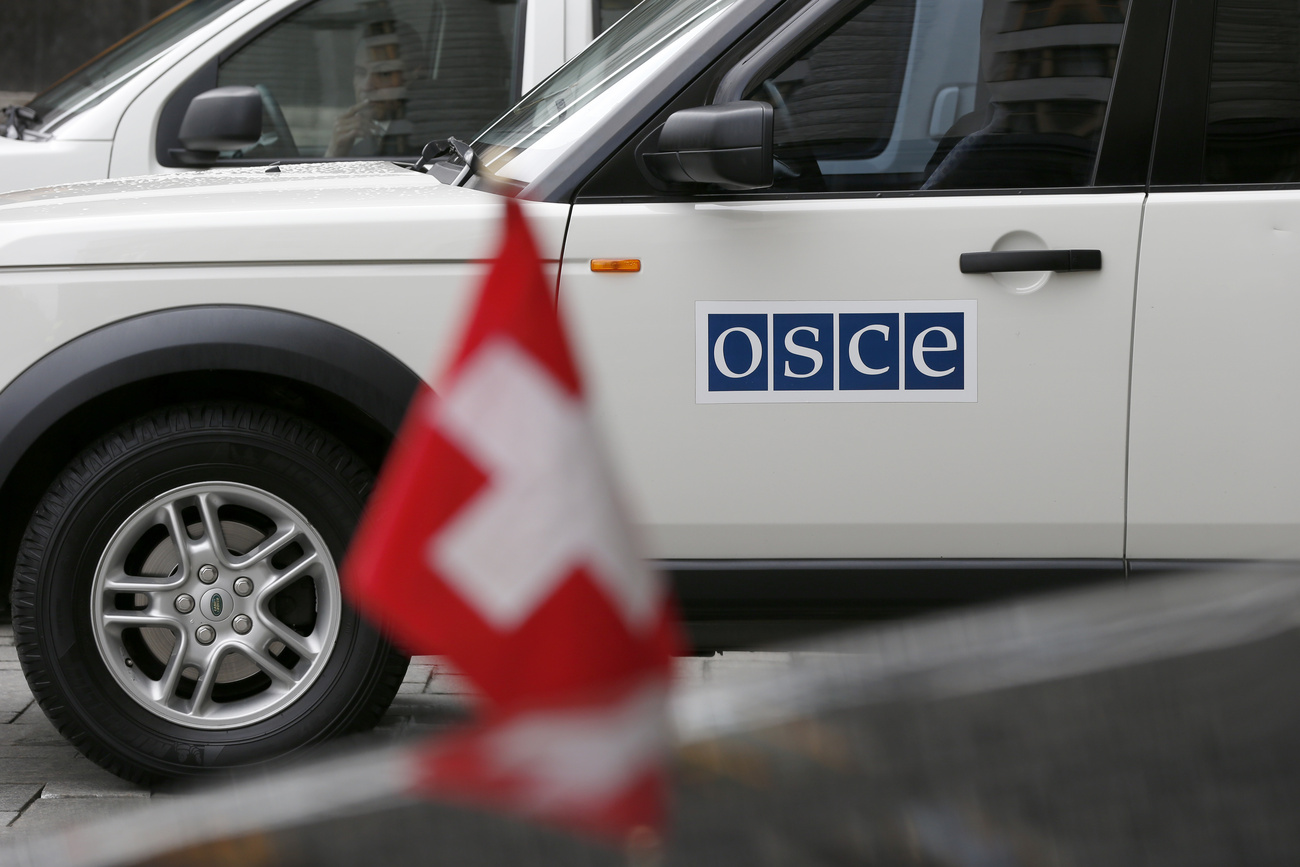



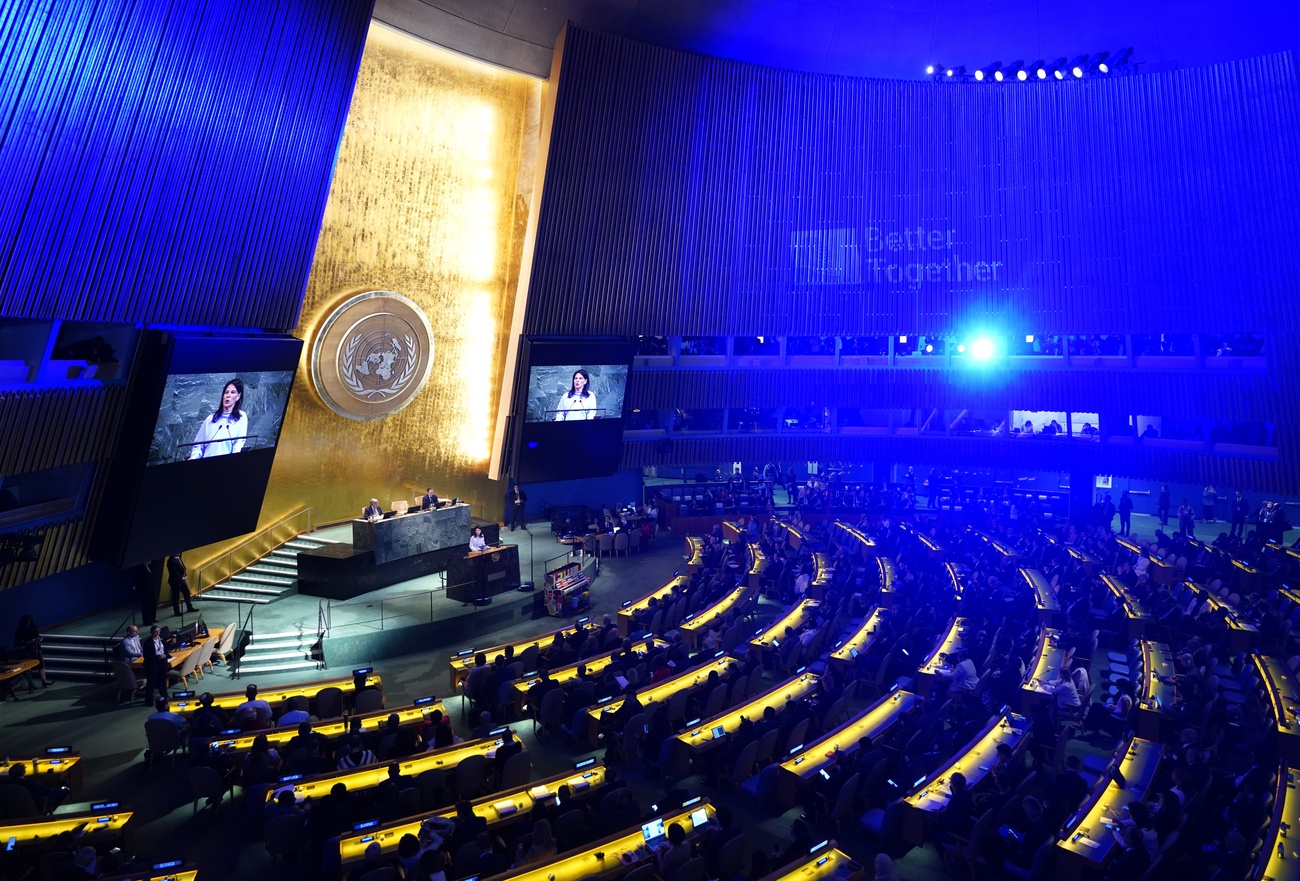




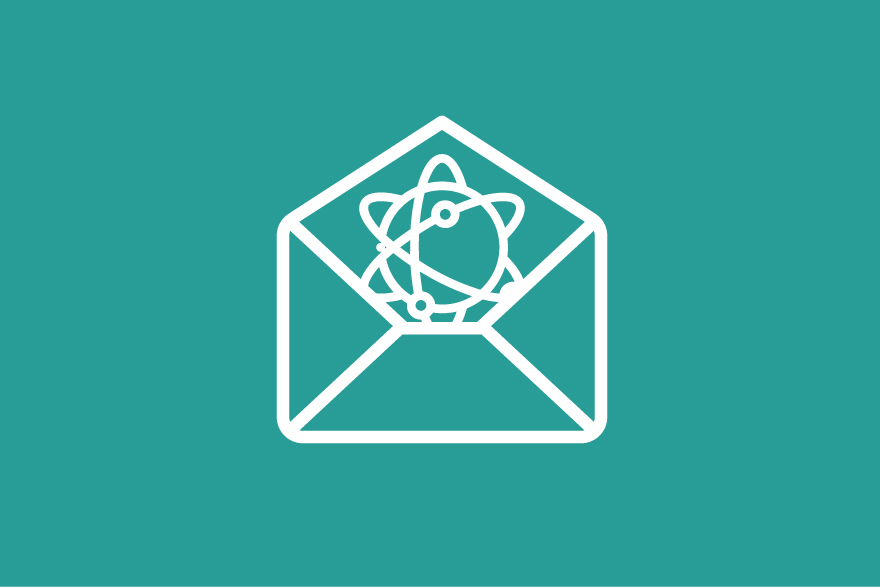









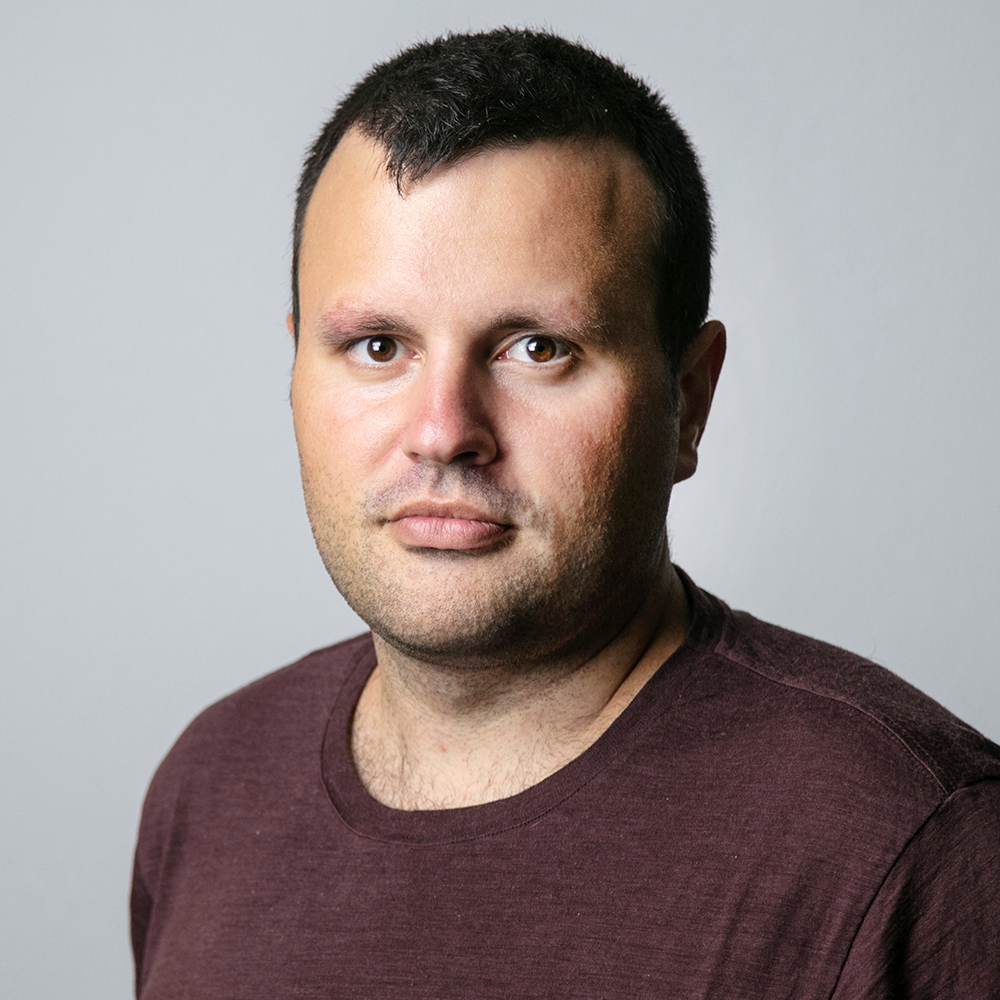
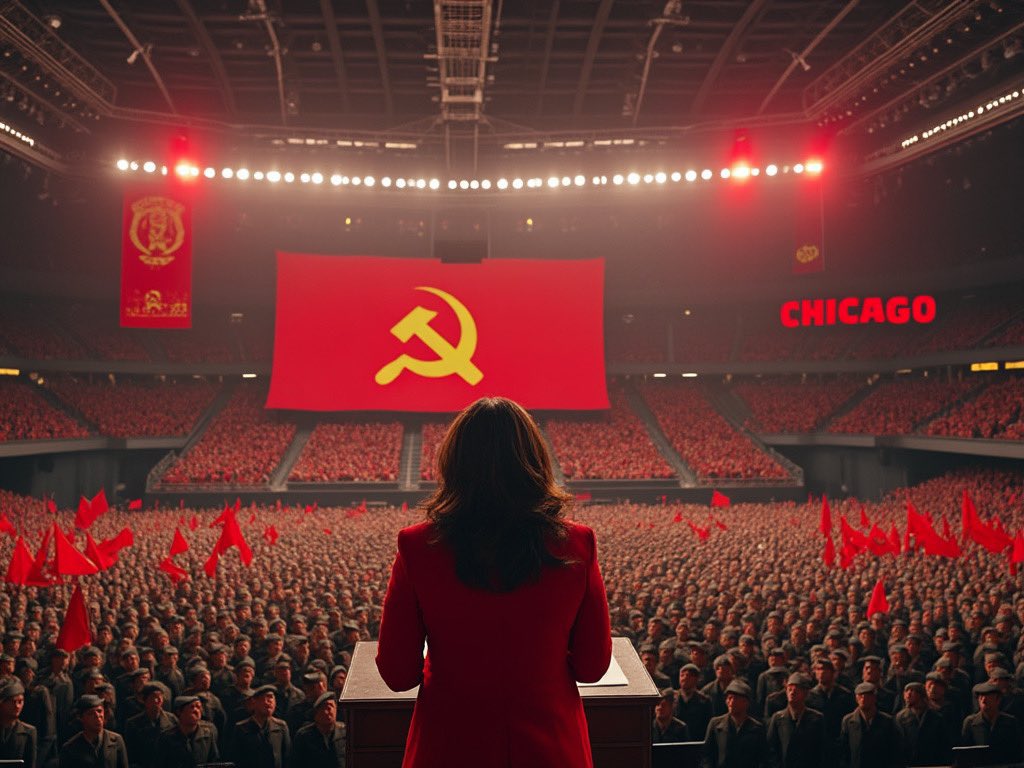
この記事にコメントする